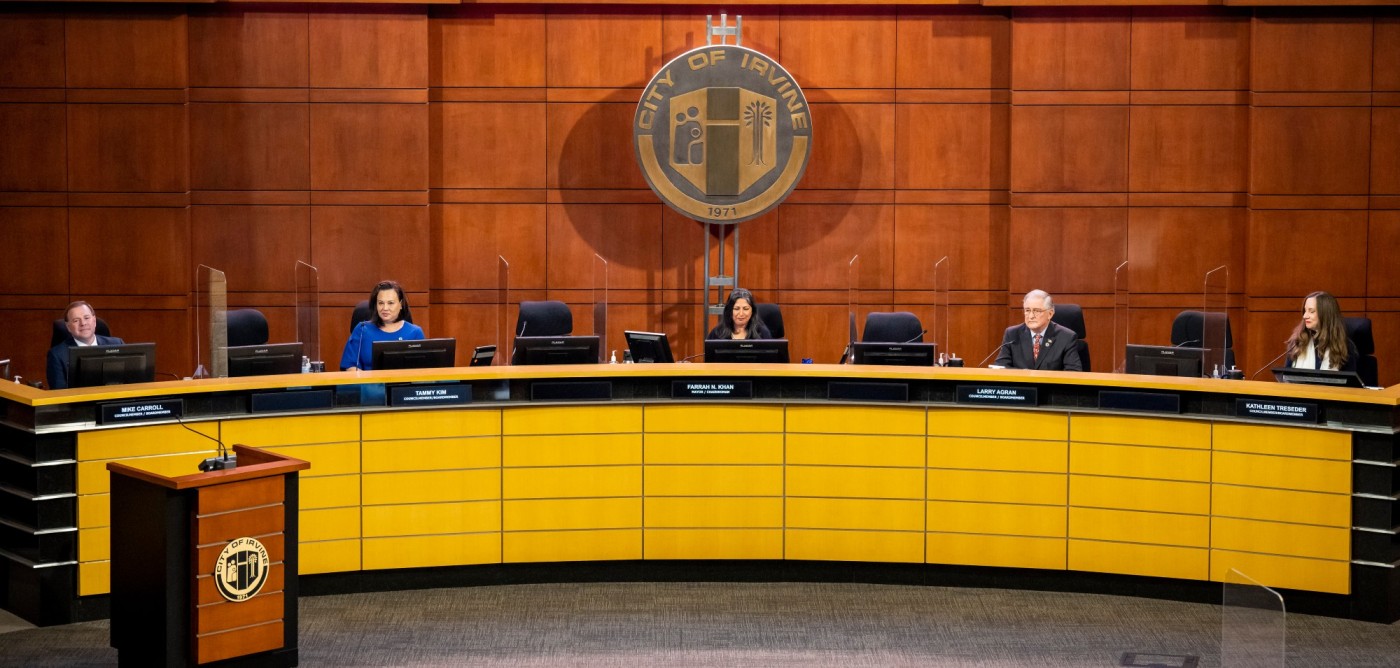Irvine is considering a workaround after a federal judge dealt a blow to the city’s plans to go all-electric for most new buildings.
In late March, the City Council unanimously voted to go all-electric in new construction in the city, with some exceptions.
Then, a federal appeals court in April ruled that the city of Berkeley cannot enforce a natural gas ban in new buildings, citing federal law that says only the U.S. government can set energy-efficiency standards for appliances such as stoves, furnaces and water heaters.
With Irvine’s ordinance similar to Berkeley’s, city staffers pulled the plug after the first reading of the ordinance. (An ordinance has to be read twice to go into effect.)
Instead, Irvine is exploring “regulating the emissions of a building” instead of “regulating the type of fuel coming into the building,” said City Manager Oliver Chi.
City staffers will present their findings to Irvine’s council in July, including whether emissions can be reduced to a point comparable to the building electrification ordinance, he said.
As part of Irvine’s Climate Action and Adaptation Plan, the goal is to achieve carbon neutrality by 2030. And the new ordinance that was set to go into effect on July 1 would have helped the city achieve that, city staffers said, because 33% of Irvine’s greenhouse gas emissions are from buildings.
Related links
Irvine joins a handful of Orange County cities creating climate action plans
Reaching carbon neutral in Irvine will start with neighborhoods
Irvine goes all-electric for most new buildings, moving away from gas
Could Irvine’s plans to go all-electric in most new buildings be jeopardized by federal ruling?
This alternative option is “a much more complicated pathway forward,” Chi said, because building emission regulations need to meet certain federal standards as well as comply with the California Energy Commission standards.
Even if the council approves this alternative to the building electrification ordinance, “there’s no guarantee that it would be enforceable,” Chi said. “We’d still have to get work through the federal government and state government review processes prior to anything going into effect.”
Given the extensive review processes, the timeline for when this alternative could be adopted is “undetermined at this point,” Chi said.
Sierra Club, a climate advocacy organization, “supports Irvine council’s decision of developing the strongest possible version of an incentive-based ordinance,” said Hoiyin Ip, Sierra Club’s California conservation committee chair. The group is also seeking a rehearing of the federal ruling.
“This 9th Circuit Court of Appeals got this wrong. Their ruling applies an overly-broad definition of federal preemption that threatens the authority of local governments to protect the health and safety of their residents,” said Ayn Craciun, the OC policy director of Climate Action Campaign.
Craciun said she was “encouraged to see Irvine continuing to move forward with building electrification” by looking at an alternative pathway.
“The fact that Irvine is taking a stand within the parameters available signals to the market where things are headed and that clean energy for homes and buildings will ultimately prevail,” she said.
But the California Restaurant Association, which brought the lawsuit against Berkeley, said the appeals panel “unanimously affirmed the central issue in this case: local ordinances cannot override federal law.”
“Cities and states are not equipped to regulate the energy use or energy efficiency of appliances that businesses and homeowners have chosen,” said CRA President Jot Condie. “Energy policy and conservation is an issue with national scope and national security implications.”
Meanwhile, Republicans in Congress are working to prevent any bans on gas stoves. One recently-passed bill would prohibit the use of federal money to regulate gas stoves as a hazardous product while another measure would block an Energy Department rule setting stricter energy efficiency standards for stovetops and ovens.
The Associated Press contributed to this report.
Related Articles
India pauses plans to add new coal plants for five years, bets on renewables, batteries
Irvine is giving OCPA another chance — again
Nuclear Regulatory Commission finds two violations at San Onofre, but no safety threat





